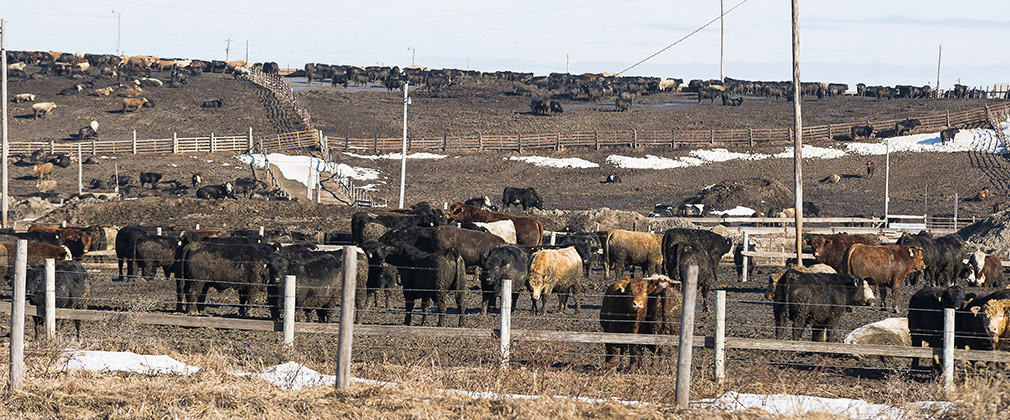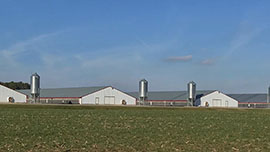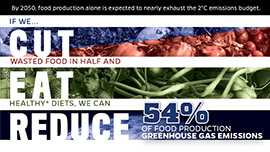Industrial Food Animal Production
 In recent decades, the production of meat, dairy and eggs is characterized by ever-increasing scale and concentration; production methods that involve heavy use of pharmaceutical compounds and inexpensive labor; and control in the hands of a small number of companies. These methods of production are well-established and entrenched in many high-income countries, and over time are becoming more prevalent in lower- and middle-income countries (LMICs). There is accumulating scientific evidence that this manner of animal production is unsustainable and poses serious risks to rural communities, consumers and ecosystems.
In recent decades, the production of meat, dairy and eggs is characterized by ever-increasing scale and concentration; production methods that involve heavy use of pharmaceutical compounds and inexpensive labor; and control in the hands of a small number of companies. These methods of production are well-established and entrenched in many high-income countries, and over time are becoming more prevalent in lower- and middle-income countries (LMICs). There is accumulating scientific evidence that this manner of animal production is unsustainable and poses serious risks to rural communities, consumers and ecosystems.
Through the Industrial Food Animal Production (IFAP) project, the CLF has engaged in work focused on these issues for more than 20 years, spanning this production modality in both domestic and international settings. The purpose of the IFAP project is to characterize and address these issues by:
- Conducting research to generate the scientific evidence needed to effect change
- Serving as a resource for government and private-sector decision makers, and the advocacy community
- Translating evidence for diverse audiences
- Training the next generation of food system and public health professionals
The IFAP project explores the public health implications of:
- Antimicrobial misuse in food animal production
- Resource (land, water, energy) use in animal production
- Current workforce structure and conditions in food animal production
- Food production, diet and impacts on global ecosystems (e.g., climate and water use)
- Aquaculture (i.e., farmed aquatic animals) and fisheries
- Food animal production practices on the health of communities
- The global expansion of IFAP production methods
Op-Eds and Letters to the Editor
- USDA’s approach to meat labeling is failing
The Hill, 2022 - Op-ed: Monopolies Are Giving Chicken Farmers a Raw Deal. We’re Urging States to Act
Civil Eats, 2022
Recent Peer-reviewed Publications
- Study Offers Public Health and Food Systems Perspective on Meat Alternatives
August 31, 2020 - Ecosystem and Public Health Risks from Near- and Offshore Finfish Aquaculture
CLF Report, 2017 - O’Connor et al. systematic review regarding animal feeding operations and public health: critical flaws may compromise conclusions
Systematic Reviews, 2017 - Fisheries, Food, and Health in the United States: The Importance of Aligning Fisheries and Health Policies
Agriculture and Food Security, 2017 - Poultry Consumption and Arsenic Exposure in the U.S. Population
Environmental Health Perspectives, 2017 - Nitarsone, Inorganic Arsenic, and Other Arsenic Species in Turkey Meat: Exposure and Risk Assessment Based on a 2014 U.S. Market Basket Sample
Environmental Health Perspectives, 2016
Highlighted Peer-reviewed Publications
- Concerns re: interpretation and translation of findings in Energy use, blue water footprint, and greenhouse gas emissions for current food consumption patterns and dietary recommendations in the US
Environment Systems and Decisions, 2016 - Industrial Food Animal Production and Community Health
Current Environmental Health Reports, July 2015 - Investigating the Role of State Permitting and Agriculture Agencies in Addressing Public Health Concerns Related to Industrial Food Animal Production
PLOS ONE, February 2014 - Investigating the Role of State and Local Health Departments in Addressing Public Health Concerns Related to Industrial Food Animal Production Sites
PLOS ONE, 2013 - High-Density Livestock Operations, Crop Field Application of Manure, and Risk of Community-Associated Methicillin-Resistant Staphylococcus aureus Infection in Pennsylvania
JAMA Internal Medicine, September 2013 - Restrictions on antimicrobial use in food animal production: an international regulatory and economic survey
Globalization and Health, October 16, 2013 - Roxarsone, Inorganic Arsenic, and Other Arsenic Species in Chicken: A U.S.-Based Market Basket Sample
Environmental Health Perspectives, May 2013 - Veterinary drug residues in seafood inspected by the European union, United States, Canada, and Japan from 2000 to 2009
Environmental Science & Technology, September 2011
Essential Reports
- Ecosystem and Public Health Risks from Near- and Offshore Finfish Aquaculture
CLF Report, 2017 - Public Health, Immigration Reform and Food System Change
CLF Report, 2017 - Industrial Food Animal Production in Low- and Middle-Income Countries: A Landscape Assessment
CLF Report, 2016 - Industrial Food Animal Production in America: Examining the Impact of the Pew Commission's Priority Recommendations
Center for a Livable Future, October 2013 - Putting Meat on the Table: Industrial Farm Animal Production in America
Center for a Livable Future, 2008
More Publications, Letters, Comments and Reports
Click here for our database containing all publications, letters and comments.
Air Monitoring Legislation May Be Path Forward for Health on Maryland’s Eastern Shore
Are residents' health problems caused by pollutants blown from chicken houses through exhaust fans?
Learn MoreCOP23 Recognizes – Sort of – Livestock’s Role in Climate Change
This year, there were a few well-attended civil society talks focused on animal consumption and climate change.
Learn MoreMaryland Legislators Dodge Questions about Poultry Industry
Monica Brooks is concerned about the growth of operations by companies like Tyson, Mountaire Farms and Perdue in Wicomico County, and their placement atop the Paleochannel, which is Salisbury’s main source of water.
Learn More

